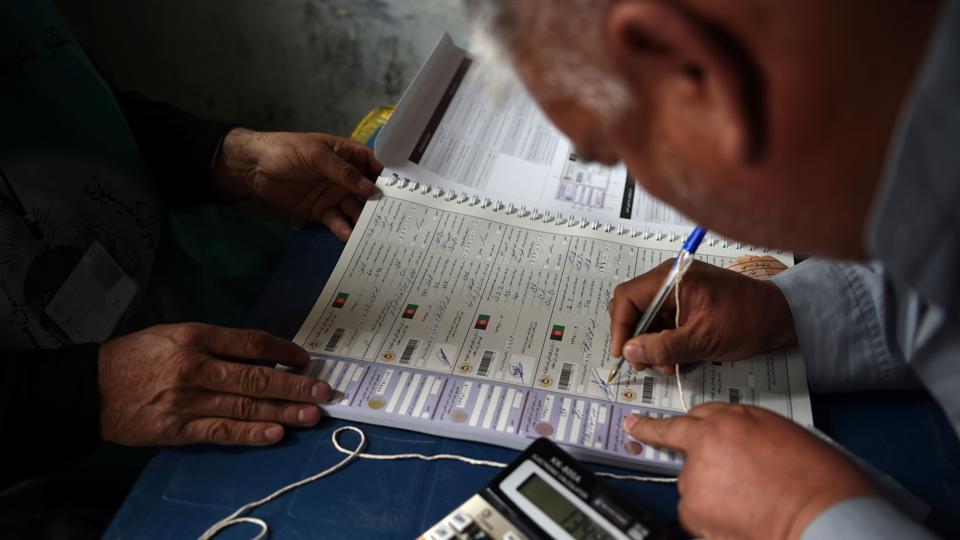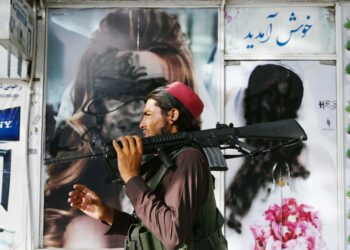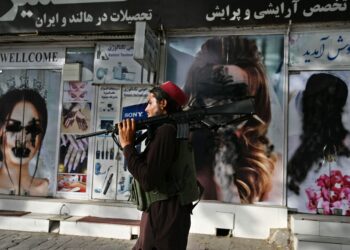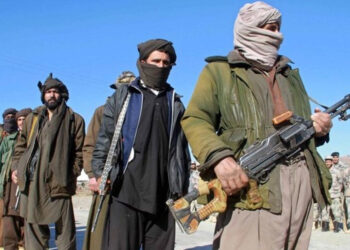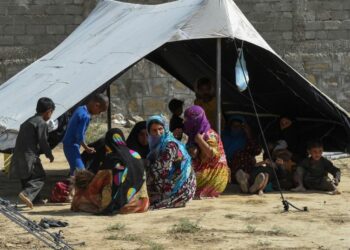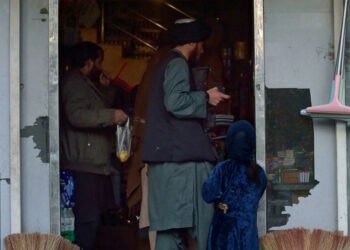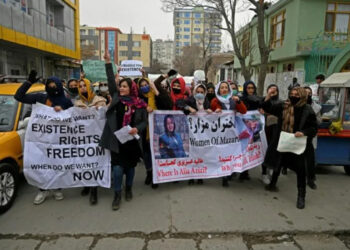The parliamentary and district council elections in Afghanistan scheduled for October 20 present both a threat and an opportunity to a state struggling with crises of political legitimacy and instability.
If conducted in a free and fair manner with results acceptable to the majority of the electorate, the elections will be a refreshing moment for the political climate of Afghanistan.
With newly elected members of district councils, the last constitutional requirement for convening a Loya Jirga, or Grand National Assembly, will be completed. A Loya Jirga, a mass gathering bringing together elected representatives from Afghanistan’s parliament, provincial and district councils, makes it possible to amend the Constitution.
The national unity government of President Ashraf Ghani Ahmadzai and Chief Executive Abdullah Abdullah has the mandate to do so. Therefore, the elections are crucially important, defining the parameters of stability and political survival of the regime in Kabul.
Unfortunately, credible elections have had no precedent in the country. Since 2004, the process and the election managing bodies have been discredited by the accusations of mismanagement, corruption, and politicization of the results. The fraudulent 2014 presidential elections could be the biggest example of an electoral scandal that pushed the country on the verge of collapse. Now, supported by international partners to roll out the process, the election commissions and the voters have to face the same old problems.
I believe Afghanistan’s to-do list to make this election acceptable to the electorate is long. The government’s priorities should include respecting the integrity of the institutions, improving security, enhancing technical intra-agencies support to the process, and demonstrating leadership for managing the unintended consequences of the elections.
Public Opinion
At the midst of an unremitting fight for survival, it is unrealistic to expect overwhelming optimism and support for the elections. The security threats to voters, electoral staff, and observers remain high.
In the very first weeks of voters’ registration, the Taliban or ISKP (a branch of ISIS active in Afghanistan and Pakistan) blew up at least ten registration sites. According to security ministers, holding elections is completely impossible at nearly 1000 out of 7000 polling centers. Another 1000 of them are in semi-secure or contested areas, where government forces have a weak or minimal presence.
The external and internal dynamics of power politics also played a role in the decline of voter’s willingness to go to the ballot. The people’s collective memory of elections is driven by the perception that who they elect is not exactly who will govern.
Unfortunately, in shaping this realization, Afghan ruling elites, as well as their international partners, have equally contributed. Therefore, the voters are rightly and equally dissatisfied with the system and with the elites. Both have failed them.
One day politicians and candidates give a flowery speech on a regular campaigning day, the next day they abandon the electorate to insecurity, corruption, and mafia.
Now, it is morally hard to ask people to participate in a process that most likely will produce the same outcome. It is simple. Restoring trust is priority number one. People want to see that their vote matters. They also expect tangible positive changes. They want peace, food, and hope. Only a functioning and legitimate government led by the right people instead of corrupt representatives can deliver this.
The Narrative Matters
Now, the question is will the people vote again? Sadly, no independent survey or polling is carried out yet. Considering the complexities of the circumstances surrounding the elections, any reaction by the people will not be surprising.
Either the turnout is as expected or not, the Afghans and their international partners cannot and should not give up on elections. The narrative of state building via democratic means and supporting a government in Kabul that holds regular elections and has separate branches of power is a distinguishing character of international involvement in Afghanistan.
The beneficiaries of this narrative, the Afghans and internationals, hugely invested on and benefited from this narrative. For the internationals, it created the rationale to remain engaged in Afghanistan. For the ruling Afghan elites, however, it offered moral authority to govern the people and fight the Taliban, who claim that only violence can bring changes.
Outlook
Technically, let’s set the bar not too high not too low. The process will be far from perfect. The Independent Election Commission has to make the on-going voters’ registration inclusive and credible. The least the commission could do to enhance transparency is producing a verifiable list of voters that connects them to specific polling centers.
Not all losing candidates will be satisfied. The risk of witnessing open-ended electoral disputes at various levels is high. The Election Complaint Commission should develop the required technical competency and institutional integrity to enforce credible electoral dispute resolution mechanisms.
Moreover, the electoral landscape is polarized and ethnicized. A possible low turnout or industrial level fraud staged by president’s cronies and teammates will create imbalanced ethnic representation, particularly in insecure districts and provinces, something that will spark divisive controversies.
In those areas, the shadow of 2010 parliamentary elections of the southeastern province of Ghazni looms large. Back then, due to insecurity and unwillingness to vote, Pashtuns failed to participate in the election. The Hazaras won Ghazni’s entire share of the parliament seats. Angry and underrepresented, Ghazni’s largest ethnic group protested and sparked a yearlong election dispute.
Hamid Karzai, president at the time, established a special electoral tribunal that further delegitimized the entire electoral process and institutions. Ever since, the insecurity is expanded not contained. Hence, the problem of ensuring fair representation might become a national crisis, raising the potential for long-term deadlock and violence.
The enemies of and the challenges to the next elections are numerous. It is not another regular election. It is about stability, narratives, and the future of a political system that is corruptly centralized and in need of urgent reshuffling and reforms. To make this a success is everybody’s task.
Disclaimer: The views and opinions expressed here are those of the author and do not necessarily reflect the editorial position of The Globe Post.

